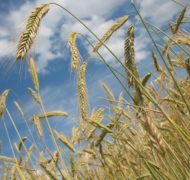Employing Assets for the Common Good (Deuteronomy 23:1-24:13)
Bible Commentary / Produced by TOW Project
Tengo Internet Gives Employees Company Ownership to Make Them Better |
Deuteronomy requires owners of productive assets to employ them to benefit the community, and it does so in a clear-headed way. For example, landowners are to allow neighbors to use their land to help meet their immediate needs. “If you go into your neighbor’s vineyard, you may eat your fill of grapes, as many as you wish, but you shall not put any in a container. If you go into your neighbor’s standing grain, you may pluck the ears with your hand, but you shall not put a sickle to your neighbor’s standing grain” (Deut. 23:24-25). This was the law that allowed Jesus’ disciples to pluck grain from local fields as they went on their way (Matt. 12:1). Gleaners were responsible for harvesting food for themselves, and landowners were responsible for giving them access to do so. (See “Gleaning” in Leviticus 19:9-10 above for more on this practice.)
Likewise, those who lend capital must not demand terms that put the borrower’s health or livelihood in jeopardy (Deut. 23:19-20; 24:6, 10-13). In some cases, they must even be willing to lend when a loss is likely, simply because the neighbor’s need is so great (Deut. 15:7-9). See “Lending and Collateral” in Exodus 22:25-27 above for more detail.
God requires us to be open with our resources to those in need, while also exercising good stewardship of the resources he entrusts to us. On the one hand everything we have belongs to God, and his command is that we use what is his for the good of the community (Deut. 15:7). On the other hand, Deuteronomy does not treat a person's field as common property. Outsiders could not cart off as much as they pleased. The requirement for contribution to the public good is set within a system of private ownership as the primary means of production. The balance between private and public ownership, and the suitability of various economic systems for today’s societies, is a matter of debate to which the Bible can contribute principles and values but cannot prescribe regulations.





